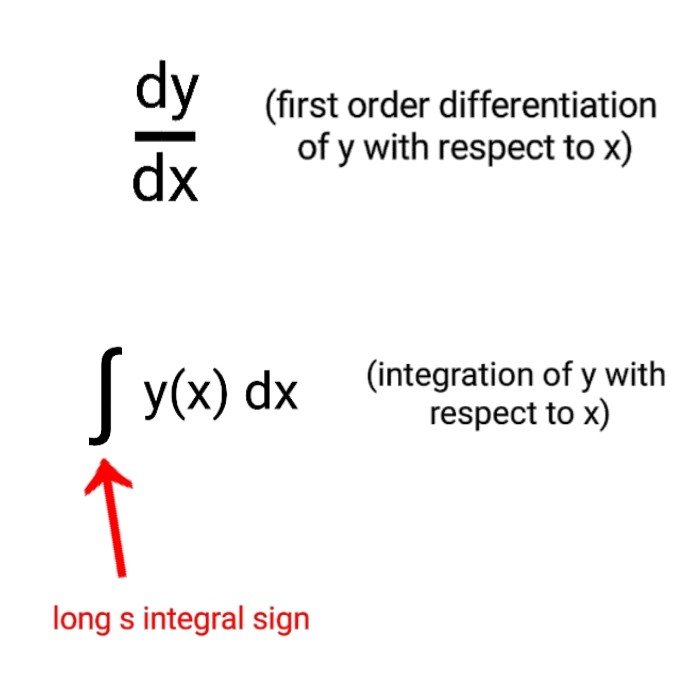Historically, science as it is today (modern science) began to take form around the 17th century, especially with the works of Sir Isaac Newton but he wasn't the only one during that era that seemed to be laying foundations for modern science, there was in fact another person who could have rivalled him as one of the greatest scientists in history but the circumstances around that time prevented this person from gaining the kind of recognition as did Newton.
But before we continue let's first give a proper introduction. This article is part of a series intended to expose us to historical and important figures of modern science, and their contributions, most especially those whose contributions has gone under the radar. The series is not only intended to expose this unpopular great thinkers but also serve as a source of inspiration and entertainment. Personally most of my inspirations (scientifically) seems to be coming from the scientists that existed around the 16th - 19th century and it's because some of them could be considered "polymaths" - having expertise in multiple disciplines. Being a polymath as at those times wasn't that difficult and it was mainly because as at that time, science was still in it's infancy. Today, science has become so diverse that it's almost impossible to fully master even a subdiscipline of science. I on the other hand love polymaths and is aspiring to become one, i just hope i live long enough to make it happen.
One historical figure and polymath that i seem to admire very well is the same person who i believed could have rivalled Newton as one of the greatest thinkers (scientifically) in history. He is none other than the German polymath Gottfried Wilhelm Leibniz.
Some of us, if not few might have come across this name probably in computer science as one of the early pioneers of computers/calculators or in mathematics as one of the early discoverer and developer of modern infinitesimal calculus. However, research in recent times has shown that his contribution to science and non-scientific disciplines was more enormous than what is popularly portrayed and believed. Factors such as his fragmented writings, bias and the dispute (nowadays called the calculus priority dispute) between him and Newton, as to whom first discovered infinitesimal calculus, may have contributed to his diminished popularity.
The reminder of this article is devoted to his (Leibniz) unpopular and very important contributions to science and technology.
Philosophy
Modern science owes a lot of dept to philosophy both historically and in modern times, this may not be obvious but when you take your time to study it's foundations, you would find philosophical concepts - this however is from a theoretical perspective. Certain paradigm shifts such as how we currently understand gravity wouldn't have been possible if Einstein hadn't gone back to the philosophical foundations of Newtonian mechanics. As matter of fact, before and during the times of Newton and Leibniz (17th - 18th century), science was referred to as natural philosophy, it was a branch of philosophy that established facts based on natural laws. Theoretically, certain philosophical concepts were/are useful in giving physical observations strong support and thus giving rise to different scientific "disciplines" or "fields".
Based on academic qualifications, Leibniz was well grounded in philosophy, he had both bachelor's and master's degrees in philosophy. He also happened to have a doctorate degree in law.
As a philosopher, he developed certain philosophical concepts that anticipated some modern discoveries, helped in the establishment and understanding of certain scientific fields and subfields. Even to this day, some of his philosophies are still been used to further understand and possibly advance certain new fields/subfields of science.
His philosophical principle of identity of indiscernibles has been invoked in recent times to better understand the foundations of quantum physics/mechanics, especially the concept of contextuality - when experimental outcomes depends on experimental set up (as in the case of the double-slit experiment - see my previous article). His philosophical principle of sufficient reason has been invoked in modern cosmology, such as the introduction of dark matter and dark energy as the reason for some cosmological anomalies.
In metaphysics (a branch of philosophy), he developed a theory for the fundamental building block of our universe, this theory is referred to as the "theory of monads". From this theory of monads, he was able to predict that space, time and motion were relative as opposed to Newton's absolute notions. With this prediction he is believed by some to have anticipated Einstein's theories of relativity. As a matter of fact, Einstein had called himself a "Leibnizian" and in the introduction to Max Jammer's book titled concepts of space, he (Einstein) wrote that Leibnizianism was superior to Newtonianism, and that Leibniz's idea (of motion, space and time being relative) would have dominated over Newton's had it not been for the poor technological tools of the time.
His philosophical thinking of symbols, it's importance and the expressibility of human reasoning in the language of mathematics (especially symbolically) was very profound in that it helped in establishing certain mathematical concepts used today and also laying foundations for modern logic. Despite Newton being the first to discover and develop calculus, most symbolic notations used in calculus today, such as the long s integral sign and the d symbol for differentiation are mainly due to Leibniz.

As being one of the earliest founders of symbolic logic, he is sometimes regarded as the founder of modern computer science, this is because of his discovery of the *algebra of concepts" that is a forerunner to a kind of symbolic/mathematical logic sometimes called Boolean algebra - theoretically modern computers are modeled based on this kind of algebra. Another very important computational concept which was foreshadowed by Leibniz's philosophical thinking of symbols (universality of symbols) is what is now known as Turing completeness.
Mathematics
Leibniz's greatest contribution in the field of mathematics was the discovery and development of infinitesimal calculus, independent of Newton. Newton was the first to discover this calculus but did not publish it, it was Leibniz who first published his, this would eventually lead to one of the most popular and heated disputes in the history of science, as Newton accused Leibniz of plagiarizing his work. However, most of the notations used in calculus today are mainly that of Leibniz. Apart from calculus, he made other mathematical contributions like extending functions to a more general concept as opposed to it's initial use for only trigonometry and logarithm, deriving a formula for pi (π), contributing to the development of modern matrix (especially laying the foundations and theory of determinants). He is believed to have anticipated what is now known as "game theory". He also inspired the mathematical development of fractal geometry - a geometric figure that is self-similar at all scales (see image below). He also made other contributions in mathematics, especially those related to physics.

If the part in the white box is zoomed/magnified, we would have the same structure as the whole image itself (which still includes that part with white box and it goes on till infinity) - a fractal Source

Image without the white box Source
Psychology
Psychology as a scientific field was founded in the 19th century by Wilhelm Wundt but the foundations (philosophically) were laid by Leibniz. Wikipedia acknowledges him as an "underappreciated pioneer of psychology".
Technology
Apart from his written works, he (Leibniz) seemed to be also active in practical works. One of his popular practical works was in the field of computers/calculators, he actually invented the first digital computer/calculator called the "stepped reckoner", unlike modern digital computers that are electronic, his was mechanical. He described a lot of computer designs that resembles modern computers. Some even go as far as regarding him as the first computer scientist and information theorist.
He made other scientific contributions, such as in social science - laying foundations for communication theory, embryology, paleontology, economics, library science - laying the foundations, linguistics, geology - predicting that Earth's core was molten in state (this was before geology became a scientific discipline) and others. He also made contributions to non-scientific fields such as politics, law, theology, ethics, history, philology and others. And these are the reasons why he's often regarded as a polymath.
Personally, i believe he deserved more credit, at least on par with sir Isaac Newton - both existed around the same time.
It's here we conclude this article, have a thoughtful day and see you next time.
For further reading
Thank you all once again for stopping by to read my jargons and also thank you @juecoree, @lemouth and the @Steemstem team for your valuable supports.
Lastly, please don't forget to do the needful
Upvote
Comment
Reblog
If you enjoyed my jargons.



That was a nice read. I didn't know the contributions of Leibniz outside math :3
But a straight lines is also self-similar at all scales ;)
I see what you're trying to do comrade 😜.
Yes it is but it's hardly a fractal, technically speaking it's fractal dimension is the same as it's topological dimension - they have to be different for it to be a fractal. The self-similar definition is mainly used for qualitative understanding/description.
Self-similar is more of a property. But then again not all fractals are self-similar. Closest to being correct and easy to understand is saying that fractals are typically self-similar.
Ok boss. I'm not well grounded in this fractal concept, so i may not be familiar with some of the things you just stated. However, are you saying conceptually speaking, there's some difficulty generalizing what a fractal actually is ?
There is difficulty in defining in what a fractal is because there are many fractal dimensions (boxcounting, correlation etc.). Is something still a fractal when there exists a fractal dimension which is equal to topological dimension and a fractal dimension which is not equal to topological dimension?
Quite interesting.
🧐 Why does this sound contradictory. Or are you talking about an object with 2 topological dimensions and above?
Probably in the first dimension of, say a 2D object, there's self-similarity but it's topological dimension is not the same as the fractal dimension and in the second dimension there's also self-similarity but the topological dimension is the same as the fractal dimension. Or is there something I'm missing ?
If it's for the 2D object, then i don't know. Plus i would love to see a visual representation of this kind of pseudo-fractal - if that's the right word to use.
So we can just take the real line and select the rationals over that. Then the topological dimension is 0, hausdorf dimension is also 0, but the box-counting dimension is 1.
For adding coordinates you can of course extend this argument to n-dimensions. :3
Long time no see! I hope everything was OK.
This blog was very interesting to read. I had no idea about the theory of monads, that seems indeed to be a kind of prequel to relativity, and I ignored Leibniz had a connection with psychology. This post was thus an excellent way to start my day and learn something early in the morning!
Cheers!
Long time no see indeed, yeah everything is relatively okay 😁.
I'm glad it did. After all, why would it have been posted in the first place, if not to learn something new.
Congratulations @clinton19! You have completed the following achievement on the Hive blockchain and have been rewarded with new badge(s):
Your next target is to reach 50 posts.
You can view your badges on your board and compare yourself to others in the Ranking
If you no longer want to receive notifications, reply to this comment with the word
STOPTo support your work, I also upvoted your post!
Check out the last post from @hivebuzz:
Support the HiveBuzz project. Vote for our proposal!
Thanks for your contribution to the STEMsocial community. Feel free to join us on discord to get to know the rest of us!
Please consider delegating to the @stemsocial account (85% of the curation rewards are returned).
You may also include @stemsocial as a beneficiary of the rewards of this post to get a stronger support.
Yay! 🤗
Your content has been boosted with Ecency Points, by @clinton19.
Use Ecency daily to boost your growth on platform!
Support Ecency
Vote for new Proposal
Delegate HP and earn more